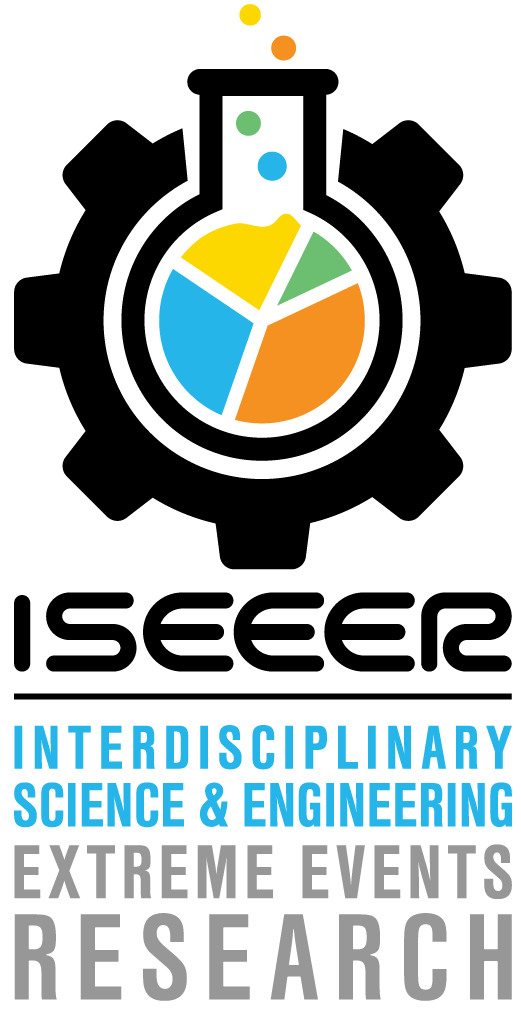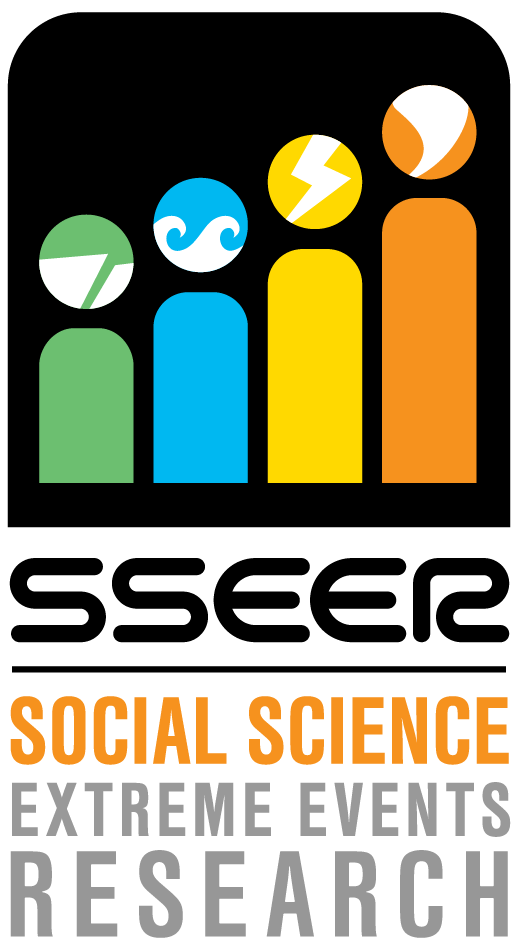EAGER
Interdisciplinary and Social Science Extreme Events Research
Check out the SSEER interactive map, now live!

What is the Challenge? Extreme events are increasing in frequency, magnitude, and scope as the population grows and infrastructure development expands and concentrates in hazard-prone areas. This project is concerned with how hazards and disaster research communities will respond to disaster events when they occur. At present, the social science and interdisciplinary disaster research communities have:
- no formal structure for organizing before, during, or after a disaster,
- no established process for communicating pressing research needs, ongoing projects, or research outcomes to affected communities and decision-makers, and
- no established culture regarding scientific agenda setting for rapid reconnaissance research.
Project Purpose: This National Science Foundation (Award #1745611) EArly-concept Grant for Exploratory Research (EAGER) project establishes a scientific platform and coordinating network for Social Science Extreme Events Research (SSEER) and a second platform and network for Interdisciplinary Science and Engineering Extreme Events Research (ISEEER). SSEER and ISEEER will draw upon insights from the science of team science (SciTS) and leverage databases and information resources available at the University of Colorado Boulder Natural Hazards Center to increase the capacity of the social science, engineering, and interdisciplinary hazards and disaster research communities. The ultimate vision for the work is to prepare individual researchers and teams to carry out extreme events rapid reconnaissance research that is coordinated, comprehensive, coherent, ethical, and scientifically rigorous.

Outcomes: This project will result in the development of two new platforms and corresponding networks, SSEER and ISEEER, that will help researchers respond to long-standing challenges of rapid reconnaissance research while advancing the disaster research field through the following research tasks:
- identifying and mapping researchers and research teams from a range of disciplines
- coordinating those researchers in the event of a major disaster
- defining guiding research questions and frameworks for rapid reconnaissance investigations
- offering ethical guidance for social science and interdisciplinary disaster research
- mentoring next generation researchers
- cataloguing and creating inventories of existing research protocols, instruments, validated scales, and secondary data sets to allow researchers to characterize affected populations and communities more quickly
- encouraging research on large-scale, sudden-onset events, as well as more creeping, chronic, repetitive loss events
- facilitating integration of interdisciplinary social science and engineering rapid reconnaissance teams
- convening social scientists, engineers, and scholars working in the science of team science field to inform projects and advance the science and practice of rapid reconnaissance research.
Principal Investigator: Lori Peek, Natural Hazards Center and Department of Sociology, University of Colorado Boulder (Lori.Peek@colorado.edu)
Graduate Research Assistants: Jessica Austin, Natural Hazards Center and CONVERGE, University of Colorado Boulder (Jess.Austin@colorado.edu)
Heather Champeau, Natural Hazards Center and CONVERGE, University of Colorado Boulder (Heather.Champeau@colorado.edu)
Undergraduate Research Assistants: Helen Gardner, Natural Hazards Center and CONVERGE, University of Colorado Boulder
Kamryn Roper-Fetter, Natural Hazards Center and CONVERGE, University of Colorado Boulder
Former Postdoctoral Research Associates: Mason Mathews, Arizona State University
Haorui Wu, Dalhousie University